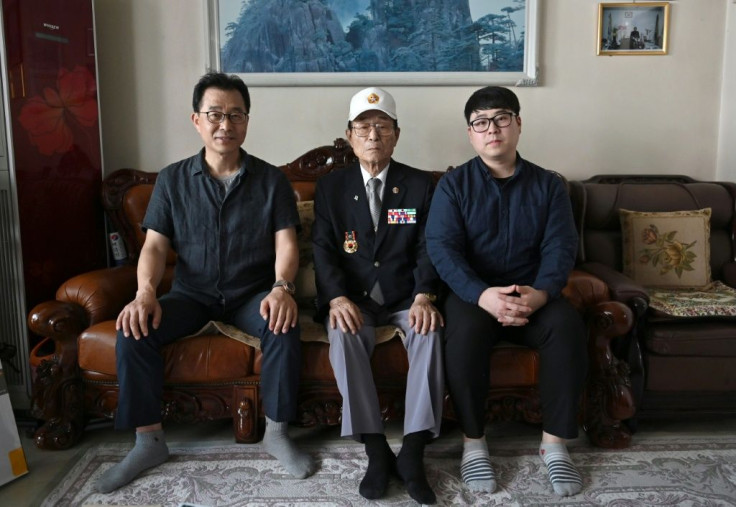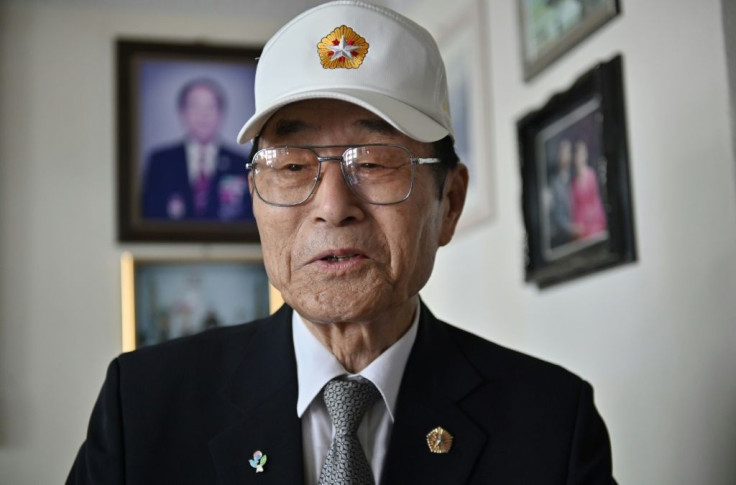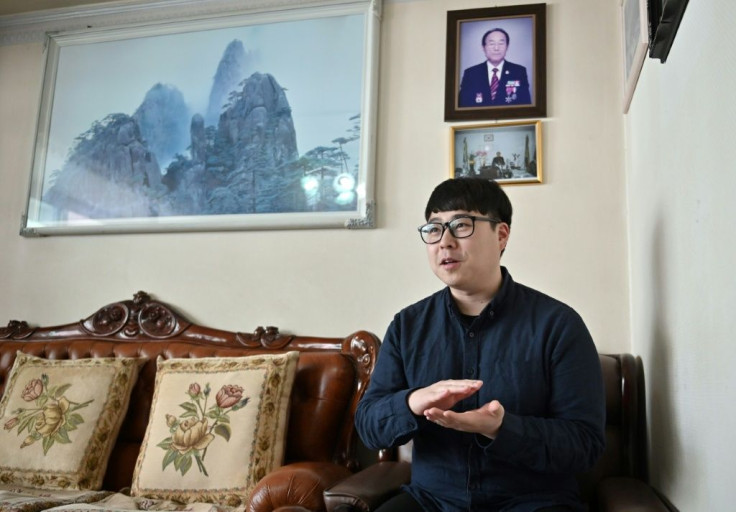Korean War Echoes Through The South's Generations
From a veteran wounded in combat to a conscripted grandson, three generations of a South Korean family illustrate changing views of the North and the Korean War, 70 years after it began.
The conflict broke out in June 1950 and ended three years later, with an armistice rather than a formal peace treaty, after the two sides and their allies fought each other to a standstill.
The two Koreas remain technically at war to this day, with the Demilitarized Zone that forms their border often referred to as the world's last Cold War frontier.
Yang Tae-sung, 89, vividly remembers the summer day when North Korea invaded.
Already a soldier, he was returning from leave on June 25, 1950, when he was rushed from the train station to the battlefield north of Seoul.

The South's ill-equipped military had been utterly unprepared for war, Yang recalls, with only around 103,000 soldiers and not a single tank.
In comparison, the Soviet-backed Korean People's Army had nearly twice as many troops, supported by hundreds of tanks, fighter jets and warships.
Yang supplied ammunition to frontline troops and experienced the full brutality of war, his left thigh bearing the scars of when enemy fighter jets bombed his unit, killing a close friend.
"When I regained consciousness after the shelling, I saw blood streaming out of him," Yang said. "Pieces of the shells had gone right through his stomach and out the other side."
And he is still haunted by the memory of an injured soldier whose wound had been infested with maggots.

Yang said he hoped for a peaceful reunification of the Korean peninsula -- under Seoul's rule -- but remains wary of the communist North, which has "time and again violated inter-Korean agreements".
Seoul must always be prepared for another invasion, he said, after a conflict that killed millions of people on both sides.
"The post-war generation don't know just how fierce and devastating the Korean War was."
Born six years after the ceasefire, Yang Kyung-mo grew up at the height of the Cold War, when the North still mounted occasional attacks on the South.
"From a young age, I was taught that North Korea was absolutely evil," said the 61-year-old.
He was nine when Pyongyang sent a squad of commandos to try to assassinate then South Korean president Park Chung-hee. They were stopped in a gun battle that left dozens dead on both sides.

Six years later Pyongyang mounted another failed attempt to assassinate Park, with a North Korean sympathiser from Japan this time killing the South's first lady during a Liberation Day ceremony.
Yang remembers taking part in regular rallies against Pyongyang in elementary school, and training in military uniform as a high-school student.
But while he understands the "lifelong trauma" his father's generation suffers, he considers their aspirations for reunification "pointless".
"I don't think any good would come from the collapse of the North Korean regime," he said.
Yang Hee-kon has never been very interested in his grandfather's war stories. And until he had to enlist in the army for his mandatory military service, his awareness of the Korean War came largely through movies or TV series.
All able-bodied South Korean men are obliged to serve in the military for nearly two years, making up the bulk of Seoul's 600,000-strong forces -- smaller than North Korea's combined forces of 1.3 million.
While he was enlisted, Yang, now 30, found himself stationed in the Demilitarized Zone.
"As I moved further into where there is no one living to finally reach the barbed wire fences, I could feel it," Yang said.
"Once I was in the field, the situation felt real."
During his two years in the military, the North sank a Southern warship and shelled a border island, sparking concerns of a bigger armed conflict.
"It was like war was right in front of our noses," he said. "I felt a sense of duty."
But back in the civilian world, Yang says, his interest in reunification has diminished.
Younger South Koreans tend to have less connection with the nuclear-armed North, having spent their adult lives in a culturally vibrant democracy regularly menaced and occasionally attacked by Pyongyang.
"I don't think that deeply about inter-Korean relations," Yang added.
"In the past I used to be very optimistic but now I think unconditional reunification could be bad realistically and economically."
© Copyright AFP 2024. All rights reserved.





















